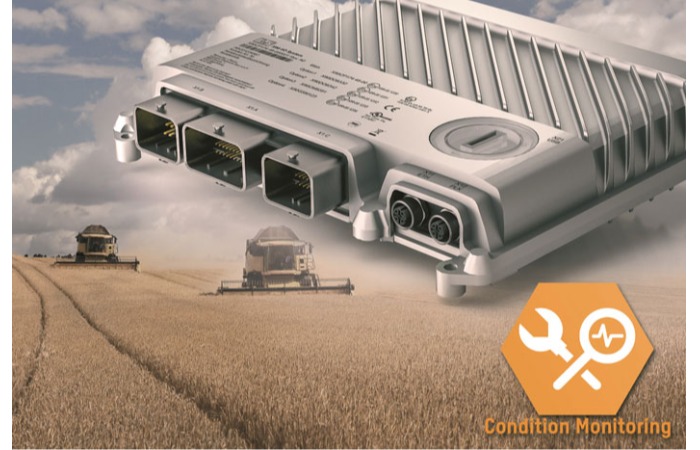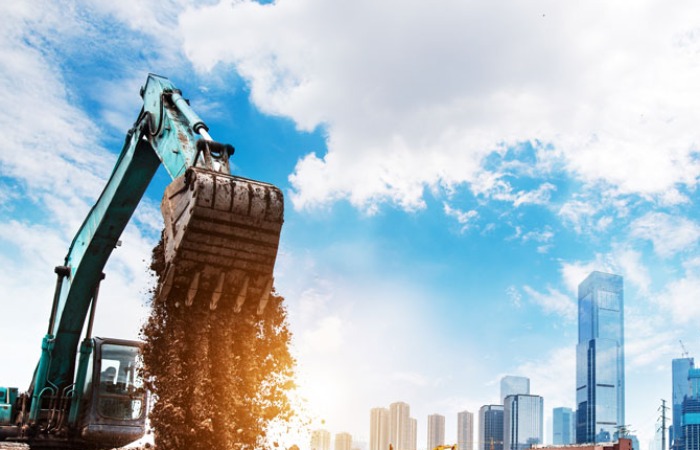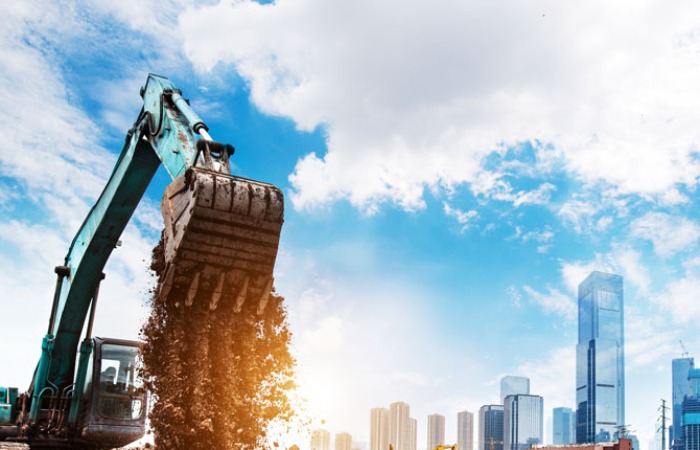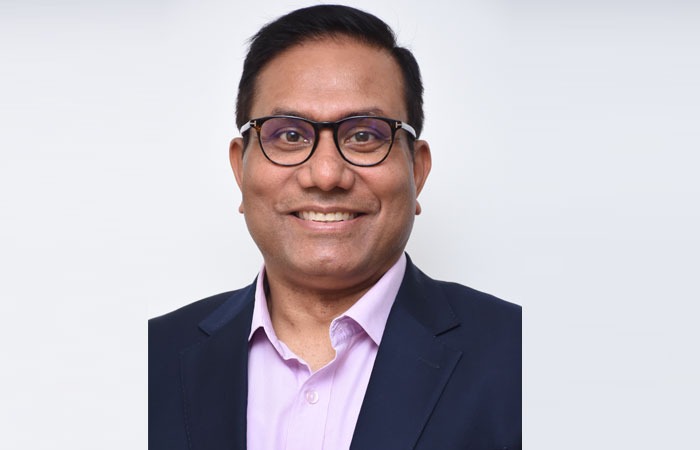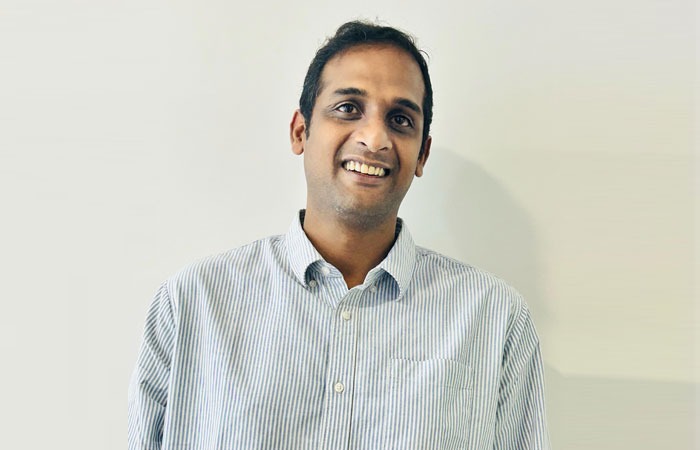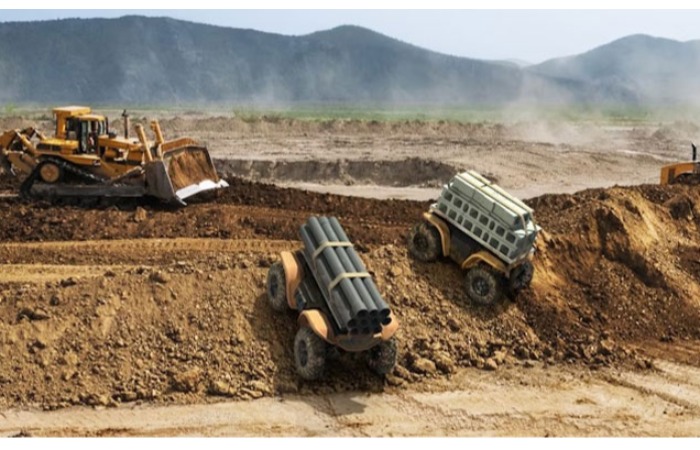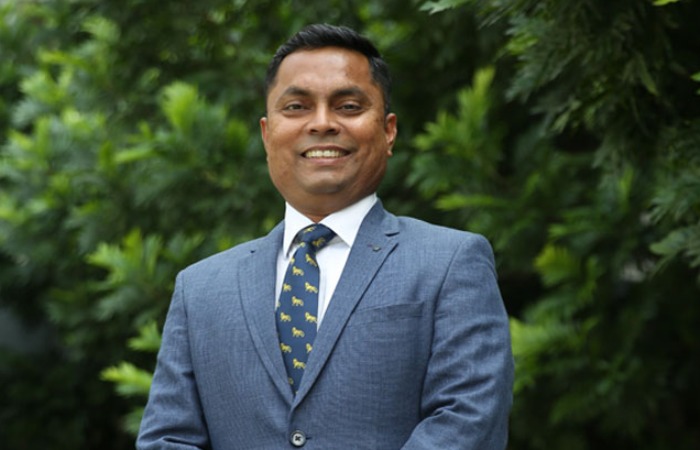Indian market has a great growth potential

Founded as Racine Threshing Machine Works in the mid-western US in 1842, CASE Construction Equipment today operates as a subsidiary of CNH Industrial. Not the one to skirt any questions, <span style="font-weight: bold;">Neil Woodfin, Brand Leader, Construction Equipment, CNH Industrial - Asia-Pacific </span>exclusively spoke to EQUIPMENT INDIA to cover everything from the company's India plans to the country's potential as a construction equipment maker to technological disruptions in the industry. Excerpts...
<p></p>
<p> <span style="font-weight: bold;">We live in very interesting times where companies like CNH Industrial are no longer just equipment makers but also solutions providers. How are you proceeding to create a complete ecosystem of services for your stakeholders?</span><br />
The product is what we all look at, a very physical object. But the reality is when you walk in as a customer, what you are looking for is the right solution. That comprises the financial solution to address the capital investment as that's usually the biggest cost for a customer. And that's why with CNH Industrial Capital we have established a finance offering here for our customers to help them invest in the right portfolio of products and services with our financial partners. Then we have to make sure we have the right product with the right attachments to meet customer needs. </p>
<p> We offer service contracts to complement those products. The nice thing about our service contract is that it ensures the customer can budget effectively and the product uptime is maximised and to avoid breakdowns because of the strong preventive maintenance programmes in place. Similarly, the aftermarket support assures parts replacement. So, whenever there is an unforeseen breakdown, we are able to respond quickly to ensure that the product is up and running as quickly as possible. Afterward, customers who want to trade-in, we make sure that they get good residual or trade-in-value. And that is where the brand plays an important part. </p>
<p> The other thing that we are working on is operator training schools since there is a shortage of skilled manpower in India and we work as a solutions provider to the customer. We are also doing training for the plant and maintenance staff of our large customers. The CASE brand has been there for more than 175 years and has obtained a strong reputation in the market. Financially, we are extremely strong following Fiat Industrial's merger with CNH Global to make CNH Industrial one of the largest capital goods companies in the world today. That should reassure customers that we are here not just today but will be around tomorrow as well. When we invest in a market, we invest for the long-term. For us, it is about building communities of customers, distribution partners, supplier partners and financing partners. That's what we try to develop and enhance. </p>
<p> <span style="font-weight: bold;">Is that what led CNH Industrial to open its first India outlet in October last year?</span> Customer reach is very important for us. We want to give back customers the opportunity to buy CASE products and our preferred route to market is through distribution. Where we can't find the right distribution, we would look to go direct. That's exactly what we have done here. Delhi NCR was the first region in India where we wanted to establish a customer centre. It's a decision we took a few years ago and we started in 2017. I am delighted that we now have a home for our sales and service and parts organisation here. We see the Indian market having great growth potential and are investing in our manufacturing facilities, engineering organisation, sales and service and parts organisation. We then also got to make sure that we have the right retail address to be able to support that investment to grow the business. We will be opening another company-owned store in Mumbai this year. </p>
<p> <span style="font-weight: bold;">At a time when India has put infrastructure creation on the fast forward mode, what are some of the ways in which the country can take a relook at the construction industry?</span><br />
India must make sure that it has an environment that supports investment for the construction equipment companies ought to feel confident. There has to be sufficient stability and a long-term vision in place. These aren't short-term investments. When you are investing in a factory, you are looking at five years and beyond in some cases. Everybody has an opportunity in this global market to invest in any country. Therefore, as a country, you are competing for global investment. The other part of an attractive investment market is the ability to manage taxes and that is where India has done extremely well. </p>
<p> It has reduced the sales tax on construction equipment to 18 per cent and that helps because the money can be put back into investment. There are incentive programmes out there that together with all the other manufacturers we have also taken advantage of. India is doing the right thing by trying to incentivise the supply chain and also innovation. Not going too far, when it comes to construction equipment, the country makes the most value-for-money machines in the world in terms of features and price points. Several Chinese equipment makers have set up manufacturing facilities in India and that is a testimony to the fact that India has arrived on the global construction equipment scene. This environment where you are constantly looking at achieving the best value through negotiation after negotiation is the most competitive.</p>
<p> <span style="font-weight: bold;">What about your engagement with the Make in India programme? Do you see India emerging as one of the major suppliers of construction machinery globally?</span><br />
CNH Industrial is riding the bandwagon and we are increasing our manufacturing base. We have a manufacturing plant in Greater Noida where we are making further investment to increase the shed and manufacturing plant area. We are investing in our Pitampur plant near Indore to set up new assembly lines. We have recently come up with an altogether new manufacturing plant close to Pune where we are going to manufacture heavy agriculture and, hopefully, construction equipment as well. We now have three manufacturing plants in India, which are going with the Make in India philosophy. In the same breath, we have also started using India as an export hub to countries with similar emission norms in South East Asia, Africa, Commonwealth of Independent States (CIS) and the Middle East that are following the same Tier-3 emission norms.</p>
<p> <span style="font-weight: bold;">What is your total India output in percentage terms?</span><br />
It's close to 20 per cent at this stage.<br />
<span style="font-weight: bold;"><br />
</span></p>
<p><span style="font-weight: bold;">At a time when there is so much discussion around artificial intelligence and machine learning, do you see construction equipment gradually becoming autonomous?</span><br />
When I go and speak to customers globally, they want to have artificial intelligence that makes complicated actions on the machine easy. They can utilise low-skilled operators and that will be the bigger use of artificial intelligence. In certain applications with high safety regulations like mining, there is a drive towards the use of more automated vehicles. But it's not only in the machine operations but also in the entire supply chain: How you manage your supply chain, how you manage your manufacturing processes inside the plant and how many robots you use for long welding or difficult-to-reach areas where you need to do some application work. </p>
<p> A couple of years ago, we introduced a basic telematics solution on our machines and from this year we launched its more advanced version, which will provide a lot of intelligence from the machine to the handheld device of the customer so that he can interact with the machine even remotely. People are fearful about artificial intelligence but we will evolve, as we have always done, as an intelligent species.</p>
<p> Look at robots for instance. We don't immediately deploy robots on assembly or on the machining lines. You have to earn the right to mechanise and people are very adaptable. To achieve the best process is to start with people first. And once you have done that, it's time to automate. Artificial intelligence will be eliminating some of the boring decision-making activities. We are using more and more of algorithms that can be constantly refined to ensure a more consistent approach towards decision making.</p>
<p> <span style="font-weight: bold;">- Manish Pant</span></p>



